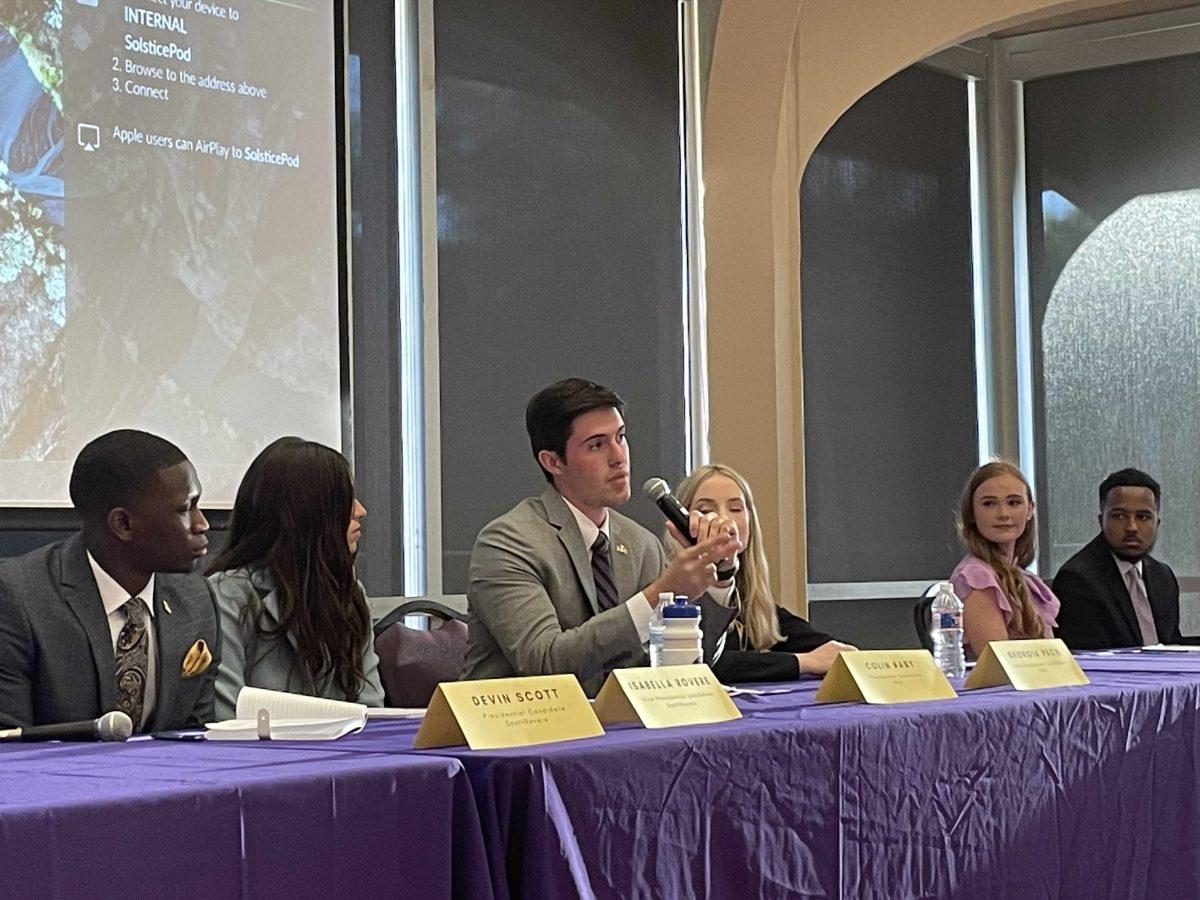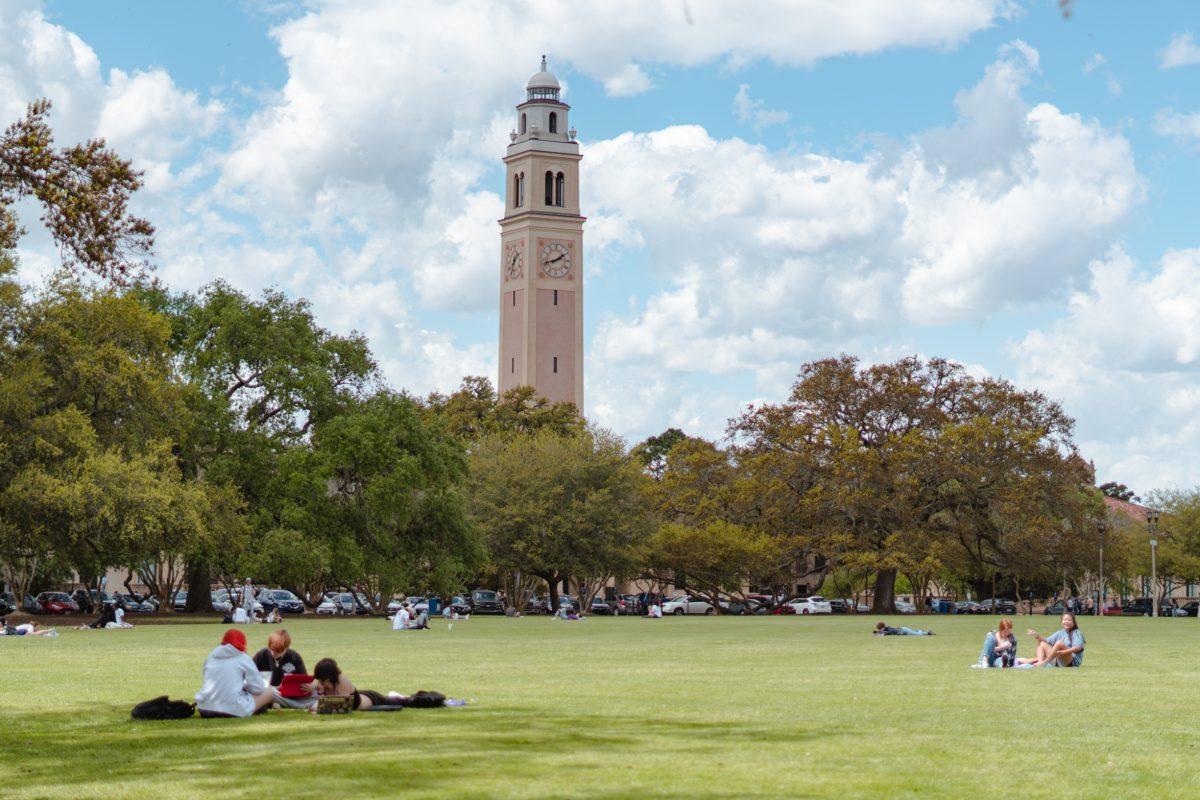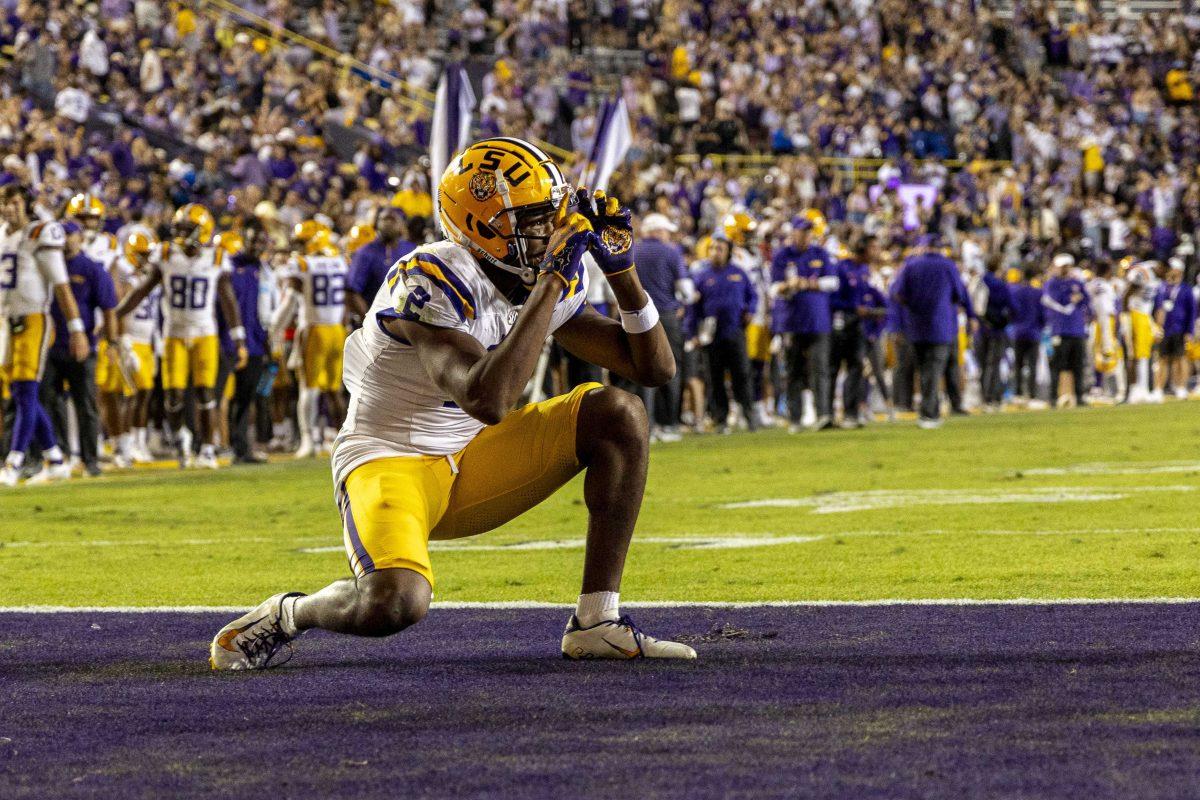Student Government candidates participated in a debate on minority issues Monday. The event was co-sponsored by the Asian American Ambassadors, African American Cultural Center Ambassadors, International Student Association and Latin American Student Organization.
Four SG tickets running for student body president and vice president – EVOLVE, RISE, Scott-Rovere and F*** Around and Find Out – participated in debate.
Landscape architecture freshman Hailee Phal from Asian American Ambassadors asked the vice presidential candidates what steps they would take to push LSU administration and the student body to prioritize minority organizations.
Nicholas St. Mary, vice presidential candidate for EVOLVE, said his campaign’s policy is working with the Programming, Support & Initiatives Fee to change the bylaws so that minority organizations can have more funding to host events.
Harris Quadir, presidential candidate for FAFO, believes PSIF is not accessible enough to students and wants to use TigerLink to create a link to show SG and Senate funding sources.
“The 19 last requests on PSIF, 12 of those were minority organizations,” Quadir said. “So the access is there, but do they know how to access it? That’s the issue I want to solve with this campus, and with reaching out to minority students.”
Kinesiology and Spanish senior Paola Colmenares, president of LASO, asked candidates what they will do to continue minority representation.
Lizzie Shaw, presidential candidate for EVOLVE, said there are not enough efforts being made to recruite minority organizations to serve in SG, especially Hispanic students.
“That’s the thing that I really love as far as Latinx representation–is to work with student organizations and groups on campus to seem if we can get LatinX representation in the executive branch,” Shaw said.
Moderators asked candidates how they would improve Black students’ experience on campus.
A member of numerous Black organizations, Scott-Rovere presidential candidate Devin Scott said the best thing to do is showcase the Black experience more on campus. He referenced a specific event in February where a panel of Black leaders around the community gave free haircuts to students.
“It’s things like this–little tokens of appreciation that just showcase why Black LSU is so great,” Scott said.
Management senior Daniel Oduber represented ISA and asked candidates if they are aware of the issues international students face on campus and how their administration will tackle those issues.
Quadir said he has seen the journey of his immigrant parents and how difficult it is. As a student senator, he said he has been part of the conversation in the Senate to provide insurance for international students.
“Some of the things that I’ve heard, and from my parents, is that financial stability is really important. Insurance issues are really relevant,” Quadir said.
Psychology and biology junior Chloe Hoang, vice president of AAA, asked candidates how they will work with LSU administration to prevent mishandlings of racist and xenophobic actions on campus.
Raby said the increase of hate crimes against the Asian community during the pandemic cannot be tolerated by the university. He believes mediating hate speech should come in through prevention and support.
“The job of the student body president is to hold administration accountable and say, ‘look, you say this is a problem. How about you actually take action in remediating it,’” Raby said.
Student leaders attending the debate had mixed feelings on whether the debate accomplished anything.
Hoang felt the debate fell short of her expectionions. She said she will individually reach out to candidates for further clarity on their positions.
“I wouldn’t consider it a ‘debate’ either,” Hoang said. “To me, it was a rushed Q&A. There were many times that I wanted to ask the candidates to clarify their answers or ask them to simply say more.”
Political science and African and African American studies senior Justin Martin believes the debate accomplished a stronger link between the candidates and minority student organizations, which is crucial to holding candidates accountable.
“I think all of the candidates had more or less detailed plans in specific areas, but overall they were willing to address topics and groups presented to them, which is important,” Martin said.







